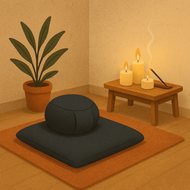The Foundations of Authentic Self Care
Posted by Jay Suthers on Aug 28th, 2025
Self-care has become a popular buzzword, often associated with luxurious spa days, bubble baths, and face masks. While these activities can be part of a self-care routine, they only scratch the surface of a practice that is truly about preserving your mental, emotional, and physical well-being. Authentic self-care is not a fleeting indulgence; it's a fundamental discipline of maintenance and restoration. It is an intentional act to nourish yourself so you can show up in the world as your best self. The key elements of self-care can be broken down into five categories: physical, emotional, spiritual, social, and mental.
- Physical: This includes everything that keeps your body healthy and functioning well: adequate sleep, balanced nutrition, regular exercise, and proper hygiene. It's about listening to your body's signals and responding with care.
- Emotional: This involves acknowledging and processing your feelings without judgment. It includes activities like journaling, creative expression, and allowing yourself to feel sadness, joy, or frustration without suppressing them.
- Spiritual: This isn't necessarily about organized religion, but about nurturing your sense of purpose and connection to something larger than yourself. This can involve time in nature, prayer, or quiet reflection.
- Social: This focuses on building and maintaining healthy relationships. Self-care in this area means setting boundaries, communicating effectively, and knowing when to seek support from others.
- Mental: This element is about engaging in activities that stimulate your mind and reduce stress. It includes learning new things, reading, or simply taking a break from screen time.
Navigating the Pitfalls: Self-Care vs. Narcissism and Victimhood
One of the most common critiques of self-care is that it can lead to selfishness, narcissism, or a victim mentality. It's a valid concern, but these are perversions of self-care, not its true form.
- Self-Care vs. Narcissism: Narcissism is characterized by an excessive sense of self-importance and a disregard for the feelings of others. Authentic self-care, by contrast, is a proactive act of maintenance. A narcissistic person may engage in "self-care" activities to boost their ego or to get attention, but their actions are driven by a need for external validation, not a genuine desire to be well. True self-care is rooted in self-compassion, which allows you to be kind to yourself without a sense of superiority or entitlement. It's about filling your own cup so you're not running on empty, which enables you to give more authentically to others.
- Self-Care vs. Victimhood: A victim stance is when a person feels they have no power or control over their circumstances and blames others for their problems. This mindset can hijack the concept of self-care, turning it into an excuse for not taking responsibility. For example, a person with a victim mentality might say, "I can't possibly help with that because I need to take care of myself," using self-care as a shield to avoid responsibility. In a healthy framework, self-care is an empowering act. It means acknowledging your limits and taking steps to restore your energy so you can face challenges, rather than using your well-being as a reason to avoid them.
Keeping Empathy Alive: Caring for Others as You Care for Yourself
A crucial test of your self-care practice is whether it enhances or detracts from your ability to care for others. The goal is to move from a place of scarcity—where you give until you're depleted—to a place of abundance, where your cup is full and you can pour into others without draining yourself.
Meditation, mindfulness, and gratitude are powerful tools that ensure self-care remains a practice of connection, not isolation.
- Meditation: Regular meditation helps you cultivate an awareness of your own thoughts and emotions. This increased self-awareness makes you better at recognizing and understanding the feelings of others. It also strengthens your ability to respond thoughtfully rather than react impulsively, which is a cornerstone of healthy relationships.
- Mindfulness: Being mindful means paying attention to the present moment. When you apply mindfulness to your interactions with others, you are fully present with them. This is one of the most profound ways to show you care. It’s the difference between hearing someone talk and truly listening to them.
- Gratitude: A daily practice of gratitude is a powerful antidote to selfishness. When you consistently reflect on the good things and people in your life, you are naturally more inclined to appreciate them and want to contribute to their well-being. Gratitude shifts your focus from what you lack to what you have, and from what you can get from others to what you can give. It's the ultimate connector between self-care and caring for others.
By integrating these practices, self-care becomes a virtuous cycle: you nourish yourself so you can connect more deeply with others, and those connections, in turn, become a source of strength and well-being. Authentic self-care is never about being selfish; it’s about being whole enough to love and serve the world around you.
Shop for Meditation Cushions Here.
I hope this is helpful but please let me know if you have any questions or thoughts.
Sincerely Yours,
Jay
If you would like to comment on this blog or have any questions, please feel free to Contact Sage Meditation Customer Service.

